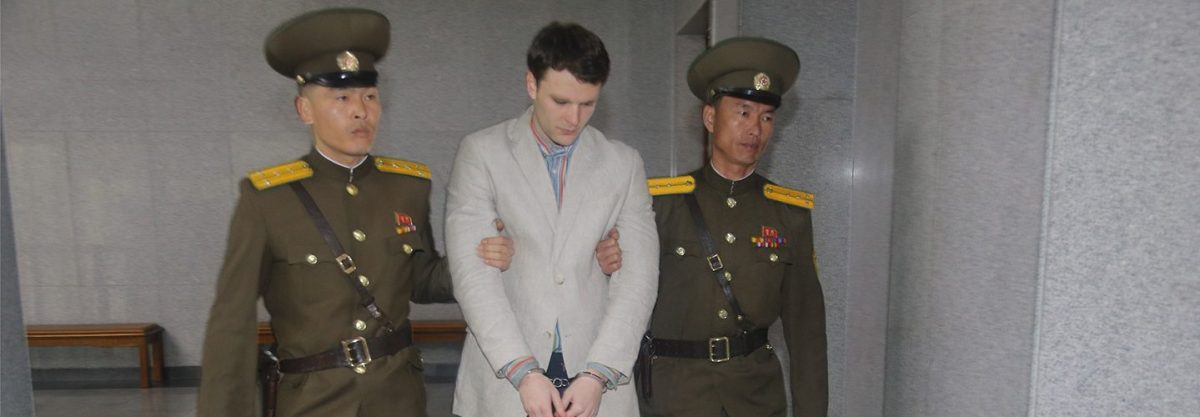In a new article in GQ, investigative journalist Doug Bock Clark details his exhaustive reporting of what really happened to American hostage and college student Otto Warmbier after he was convicted of attempting to steal a framed propaganda poster in North Korea in early 2016. He was sentenced to 15 years of hard labor, but was unconscious when he was released back to the United States after negotiations took place at the highest level. He died six days after his return to Ohio, but his parents insisted that this was because he suffered through horrific physical torture at the hands of the North Koreans. They said his teeth looked as though “someone had taken a pair of pliers and re-arranged” the bottom row, and said his arms and legs were “totally deformed.”
But this new reporting refutes that, detailing interviews with everyone from Otto’s post-mortem medical examiner to Joseph Yun, the U.S. special rep for North Korea policy who took office with President Trump. It paints a picture of a devastated young man and a political agenda that intersect to create the story the public is most familiar with today.
Dr. Michael Flueckiger, who was in charge of removing Otto from North Korean custody, told Clark: “The staff at Friendship Hospital said they received Otto the morning after the trial and that when he came in he was unresponsive,” Dr. Flueckiger said. “They had to resuscitate him, then give him oxygen and put him on a ventilator, or he would die.”
Yun corroborated this claim, telling Clark: “The doctors were clear that he had been brought to the hospital within a day of his trial, and that he had been in that same room until I saw him.”
Clark writes that because of the likely timing of Otto’s brain damage, the possibility of attempted suicide is raised.
“Imagine what Otto must have been feeling after hearing that he would spend the next 15 years laboring in what he probably imagined to be a gulag,” Clark writes. “After two months of being constantly reminded that the American government couldn’t help him, he probably felt that his family, his beautiful girlfriend (who called him her “soul mate”), and his Wall Street future were all lost. What else could he look forward to but physical and mental suffering?”
But if this happened, why would his parents tell the world their son was beaten? Another expert explained.
“I don’t believe Otto was physically tortured,” Andrei Lankov, director of the Korea Risk Group, told Clark in his office in Seoul. “The campaign to make Otto a symbol of North Korea’s cruelty was psychological preparation to justify military operations.”
Thanks for reading InsideHook. Sign up for our daily newsletter and be in the know.


















